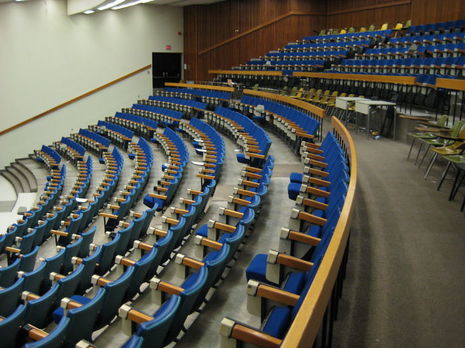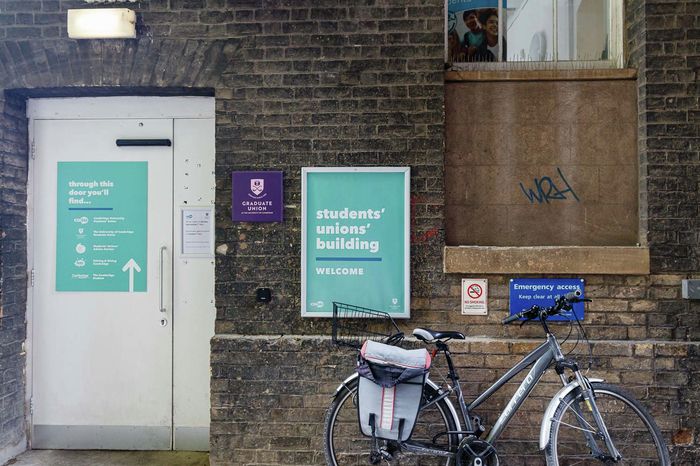Varsity investigates student experiences of online learning
Students across the University respond to the new blend of online and in-person teaching resulting from the Covid-19 restrictions

This term a majority of subjects have implemented provisions to move most or all of their teaching online in the wake of Covid-19. Varsity spoke to both students and student representatives to find out how well teaching has functioned so far this term.
Student representatives for Land Economy, Economics, HSPS, ASNaC, English and Music all made clear to Varsity that lectures are being delivered online. Daniel Quigley, the student rep for Music told Varsity that their Faculty is offering “some blended lectures and seminars, which are hosted in West Road concert hall, as well as on Zoom” so that students who wish to attend in person may do so.
Some subjects have continued in-person supervisions, at the discretion of both the supervisor and the student. These are conducted in accordance with guidelines on social distancing. Andrew Osipov, the student rep for HSPS explained to Varsity that he is personally still attending face-to-face supervisions because he believes that it “creates a more meaningful interaction and experience”.
Indeed, some students seem to be disappointed with their Departments lack of face-to-face teaching. Eliza Griffiths, the representative for Land Economy, told Varsity that “If anything some students would prefer more supervisions to be in person”.
Some students have also had big increases in the size of their supervisions this term. “In October we got a message saying that they’ve had to increase group sizes in everything to around 4 people in each supervision,” one student told Varsity. “They increased the group size course to 7 or 8 people, complimented by pre-recorded example classes.” Compared to supervision groups of two in previous years, the student commented that “it’s a big increase in group size… I know the department have tried their best in difficult times but it still feels like a big step away from the small group teaching that the university sells itself on.”
Libraries have also made adjustments to the new situation, introducing new click-and-collect systems. Additionally, many key texts are being offered online and reading lists are being adjusted to accommodate those with limited access to physical books. Miles Hawksley, student representative for Anglo-Saxon Norse and Celtic (ASNaC) explained how students had also helped in this effort by “collating all lecture notes, essays, lecture material and relevant reading material in a large online cache designed to be available to all ASNaC students and intended in particular to support freshers.”
Online provision of resources has meant that most of the student representatives understand that the experience of isolating students to be fairly positive. Andrew Osipov told us that “the largest burden has been the effect on their social lives … However, for those already accustomed to studying in their rooms during normal term time it has been quite normal.”
“The only inconveniences so far have been if a college has difficulty with delivering food and supplies to the student,” he continues “or if the student is accustomed to working in different environments … so I imagine that if students are used to working in the library or a café during the day that this would be disruptive, but not detrimental as most students are being much more cautious about covid anyway and I see fewer people in the library than usual.”
The student representative for English, Zachary Aw, who has himself been in isolation, echoed these sentiments, saying that self-isolating students “do not feel any significant disadvantages: English is generally a very self-guided course, and having all lectures recorded ensures that there is little to no disparity between students confined to their rooms or otherwise.”
Aw said that the provision of online lectures “allow(s) a lot more freedom.” He continued: “The Faculty have been releasing lectures following the schedule by which they would have been delivered in person originally, so some structure is preserved.”
Farid Aletomeh, the subject rep for Economics, agreed with Aw telling Varsity that the implementation of pre-recorded lectures has resulted in “a massive boost in the efficiency of work and flexibility”.
“For some students these (online lectures) have been great because, ironically, students have wanted recorded lectures for years”, Osipov said. “The pandemic has, in a way, given a silver-lining to the situation by forcing the faculty to put lectures online… [students] can now more flexibly choose when they watch lectures, including being able to speed-up slow-speaking lecturers or pausing throughout to take more detailed notes which would’ve previously been missed.”
In contrast none of the ASNaC classes “are pre-recorded and all lectures and classes are delivered live”, Hawksley told Varsity.
However, while praising the increase in flexibility, students have noted communicative issues with these pre-recorded lectures. “There is no standardised system of captioning for every lecture, and some lectures are completely without captions”, Aw told Varsity. “The Faculty has stated that this is due to issues with automatic captioning software being unable to properly discern between different accents/Middle English and so on.”
Outside of the academics, “many students [have said] that in-person lectures had been a great way to meet new people doing the same course”, Aw told Varsity. “The English Faculty Building is also open only for library use, so its social spaces are unavailable.”
Quigley agreed, saying “A fair amount of freshers are struggling to make friends, but for the higher years it’s not such a huge issue.” He added that “the varying internet qualities are [also] pretty noticeable in Zoom and Teams calls.”
Students have also noted that one of the biggest challenges this term is the “loss of departmental social events and spaces”, according to Hawksley. “Our beloved common room and our weekly pub meetings are now limited or off limits and this makes welcoming new students and building new relationships hard. Online contact is efficient and a great alternative that we’re lucky to have, but nothing beats laughing over a cup of tea in the department kitchen or getting to know new faces at ASNaC lunch.”
“Apart from the loss of a community feeling amongst students due to not being able to attend in-person lectures and feeling less connected through online teaching, communication has largely remained the same”, Aw told Varsity, “as students already communicated quite widely online and even more comically now, over Zoom or Facebook Messenger chat during live teaching sessions.”
Most Faculties have not put specific pastoral support in place for students struggling with the new reality of online teaching. Many Directors of Studies have provided this support, such as those for ASNaC, which “have been essential in supporting students with applying for remote study conditions and checking in with individuals to ensure they are settling and coping with the unusual situation”, Hawksley told Varsity. “Students feel they can approach staff easily for assistance, as well as to confidently raise any issues. Staff response to email communication has been prompt and thorough in all instances.”
“Overall those students who have always been really involved and passionate with their subject have continued to stay interested and motivated at this level,” Osipov told Varsity, “whilst I anticipate that it has been slightly harder for those in self-isolation to stay motivated due to having less of an in-person social life (which can help to balance individual studying).”
Many students in isolation did not feel that their time isolating put them at a disadvantage. “I went into isolation on the first day of the academic term - not the best way to start a year - and was initially apprehensive about how work and learning would continue,” 2nd year Medicine student Rob Cooper told Varsity. “However it soon became apparent that with most of the medic content online, and with supervisors having planned for this eventuality already, there was no need to worry. Work and supervisions almost carried on as normal - if anything not being able to leave the house meant I could stay on top of everything at the start of the year and not get behind.”
“Equally when it came to support from college and the faculty, I felt like most things had been taken into account. I could have books delivered from the library if needs be, and I had the contact details of any lecturer if I had any questions. For me, two weeks of isolation wasn’t too bad a thing at all, being in a house with a load of mates meant it wasn’t a bad experience and I didn’t feel sidelined or neglected at any point.”
Another student who had spent time in isolation told Varsity that their experience was not seriously different from outside of isolation. “The History Faculty were doing most things online anyway and most libraries have been very helpful when it comes to getting books (e.g. letting friends pick them up)”, one History student said. “One of my papers, which is normally taught in seminars of 16, has been split into two groups of 8 by the convener in order to make online seminars better resemble the conversational style of in person ones.”
“Ultimately many students seem to have adapted fairly well, given the circumstances,” Aw told Varsity.
 Interviews / Lord Leggatt on becoming a Supreme Court Justice21 January 2026
Interviews / Lord Leggatt on becoming a Supreme Court Justice21 January 2026 Features / Are you more yourself at Cambridge or away from it? 27 January 2026
Features / Are you more yourself at Cambridge or away from it? 27 January 2026 News / Reform candidate retracts claim of being Cambridge alum 26 January 2026
News / Reform candidate retracts claim of being Cambridge alum 26 January 2026 News / Stand Up To Racism protests in solidarity with Minneapolis marches28 January 2026
News / Stand Up To Racism protests in solidarity with Minneapolis marches28 January 2026 News / Vigil held for tenth anniversary of PhD student’s death28 January 2026
News / Vigil held for tenth anniversary of PhD student’s death28 January 2026










